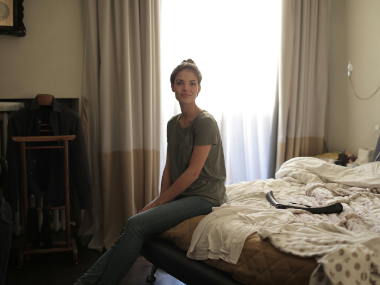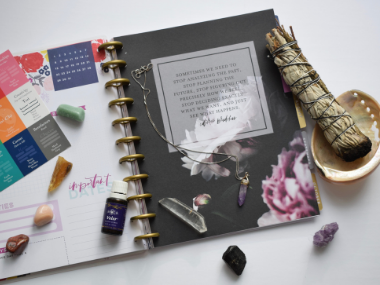
Think of the most organized people you know. Chances are, they achieve a lot. Often, they are people who juggle busy social lives with thriving family lives and fulfilling careers.
In contrast, perhaps you find it difficult to get organized - or, at least, difficult to stay organized once you start. Luckily, such positive habits are not innate.
While some people find staying organized easier than others do, it's certainly a skill that can be learned.
In this article, we'll help you understand what's holding you back from having a maximally productive life, and we'll give you the best advice for getting organized.
We'll begin by exploring three distinct reasons why the organization is so important in life. Then, we'll move on to look at seven changes and techniques you can add to your own life in order to get organized.
Finally, we'll say a little about how you can keep these good habits over time.
Why Is Organization Important?
While we all have the intuition that being organized is good, we don't often think about why.
So, before we look at concrete habits, let's consider why it's so important to get organized in the first place.
Here are three compelling reasons to try and bring more structure to your life.
Bad Habits Cause Disorganization

The consequence of such procrastination is being chronically dishonest with yourself rather than living an authentic life.
In addition, you may be tempted to self-medicate with alcohol, drugs, or food in order to deal with the disappointment and guilty associated with constant procrastination.
In addition, being disorganized encourages a lack of accountability. You don't fully hold yourself responsible for your life or for achieving your potential, and dissatisfaction follows.
Further, the disorganized often have bad habits in social contexts, from being late to forgetting important promises made to others.
So, while you'll also doubtlessly need to do some additional self-reflection and other work, becoming more organized is to take a huge step towards a future where you stop bad habits for good.
A Disorganized Lifestyle Can Cause Negativity

For example, you easily lose important things when you're disorganized. You might lose track of everything from precious gifts to irreplaceable souvenirs, loose change, and notes stating the date of important appointments.
It's also common to lose track of time when you're disorganized, which means that even if you don't actively procrastinate you might still never get to the most important items on your task list.
Of course, some negative consequences of disorganization are personal, so it's worth taking a moment to think of the consequences you've seen in your own life.
Which have you seen most often? Which has been the most disruptive? Thinking about the real-life results of being disorganized can help to motivate you to make lasting changes in your life.
Quick And Simple Reasons To Get Organized
Finally, there are also some straightforward, common-sense benefits of being organized that the disorganized lack.
For example, you'll be able to get up early enough to have time for yourself.
You can get to work with time to spare, so you start the day with a clear head and a good reputation. You have more time for hobbies.
You also make sure you have time to get everything ready for going out, so you're always looking and feeling your best. You have the time to relax before bed, maximizing good quality sleep.
How To Get Organized And Stay Organized
So, you're convinced that being organized is a good thing. Where do you start in bringing order to your own life?
We'll work through seven steps to getting organized, offering examples of how you might apply each technique in practice.
Even just adding one of these steps into your life can begin to make a difference, empowering you to pursue further change.
The trick is to stay organized, rather than just applying all of these ideas once or twice.
To this end, we'll make notes throughout to help you create habits that stick over time.
Create Good Habits To Build Routines

Ideally, you'll have an organized daily routine that you can stick to, and that promotes both health and happiness.
There are many different ideas you can apply, but one that's universally helpful is having a morning routine.
In other words, get up early and set a great tone for the day!
Start by getting up 10 minutes earlier, then 20, and keep going until you have a routine of having at least an hour to yourself before you have to get ready for work.
Use this time to write a to-do list for the day, and to some basic morning stretches in order to wake up your body.
Getting Organized To Help Plan Ahead

However, to get organized, it's even better to create a rough plan for every week.
Of course, you're not psychic, so don't make the mistake of blocking out all of your time.
When thinking about how to organize your day, schedule the things that are necessary for your goals and your well-being.
Then, leave large chunks of further time open for further things you need to schedule closer to the time they happen.
Sometimes, you'll also have things you want to do during the week while remaining open to when.
Consider setting up daily reminders of these things (e.g., "update CV") so you can find the perfect time.
Make Organization Feel Natural
When you read about how to stay organized, you might think "This just doesn't sound like me."
The key takeaway is that you need to find a way to make the structure work for you - and that way might be totally different from someone else's.
For example, suppose morning routines don't suit you. Simply flip the script and schedule in some evening wind-down time where you schedule the next day (rather than doing it early in the morning).
Don't organize your life based on some ideal fantasy that isn't realistic. Instead, find the sweet spot where you challenge yourself but also play to your strengths.
Be Consistent, Not Perfect
On a similar note, don't aim to be perfect. It's absolutely fine to deviate from your plan, as long as you get back on track. Don't punish yourself or wallow in shame.
Instead, dust yourself off and ask "What did I learn from this?". For example, you might have learned that you can't stick to a workout routine that asks you to run every day.
Dial it down to three sessions a week, and see if you can stick to that.
Creating positive habits is all about staying consistent, creating new neural pathways in the brain that gradually make the habit second nature.
Prioritize And Balance

We are constantly bombarded with messages saying we need to "have it all" and have a perfect life. In the quest to be perfect, balance often gets lost.
So, as part of keeping your days streamlined, give serious thought to when to say "no" to someone.
Build up comfort with turning some things down in order to devote your heart and soul to the things that matter most to you.
If you spread yourself too thin, you won't get satisfaction in any area.
Use Feng Shui To Declutter Your Life

We all have possessions we don't really need, and often they sit in our line of sight and just make our environment seem chaotic.
Feng Shui tips include the following:
- Try to do a major declutter at least once a year - ideally in spring, the time of renewal.
- Set a date (or a series of dates) ahead of time, and go ahead with it no matter what.
- Focus on decluttering the "zones" where you do creative work and relaxation activities.
- Play music while you work - the more upbeat and motivating the better.
- Wear colors that attract action from yourself and others (e.g., red)
- Minimize your use of dark, energy-sapping colors (e.g., black and dark brown).
Try Self Hypnosis For Getting Organized

Specifically, self-hypnosis for organizing skills can offer a fast, effective solution, assisting you in cultivating new habits by helping you to change outdated feelings and beliefs.
In our hypnosis for organization program, we lead you into a deeply relaxed, highly receptive state where we can support your goals.
We'll make it easier for you you stop putting things off, encourage you to streamline your life, and even help you get rid of the shame that can trigger procrastination.
Ultimately, all of these changes will help you take control of your life. This is key to health and happiness, to building successful relationships and finding your life's purpose.
With this program, you can make procrastination a thing of the past, becoming the most productive version of yourself you've ever been.
Staying Organized
Now, suppose you do everything that you need to do to organize your life.
What then? How do you stay organized in the long run, without slipping back into counterproductive old habits?
The trick is just to keep monitoring yourself and holding yourself accountable.
Use the above list to check whether you're staying on course.
Once Your Life Is Organized; Try New Things
After you get used to the benefits of organized life, you'll no longer need to work at it. And once this way of becoming your default, a whole world of further experiences opens up for you.
After all, you've structured your life so that you have time to do more. This means you can finally start trying new things - picking up new hobbies, traveling to new places, and learning more about yourself.
If there's something you've always wanted to do or become, this is the ideal time.
As the Law of Attraction teaches us, we attract what we put out into the world. So, when you put out positivity, ambition, and empowerment, that is exactly what comes into your life.


